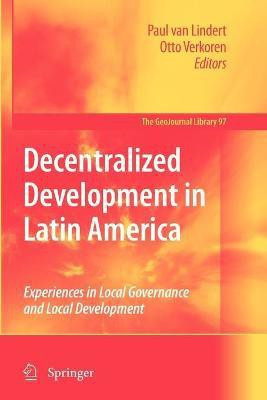Decentralized Development in Latin America(English, Paperback, unknown)
Quick Overview
Product Price Comparison
Much of the scholarly and professional literature on development focuses either on the 'macro' level of national policies and politics or on the 'micro' level of devel- ment projects and household or community socio-economic dynamics. By contrast, this collection pitches itself at the 'meso' level with a comparative exploration of the ways in which local institutions - municipalities, local governments, city authorities, civil society networks and others - have demanded, and taken on, a greater role in planning and managing development in the Latin American region. The book's rich empirical studies reveal that local institutions have engaged upwards, with central authorities, to shape their policy and resource environments and in turn, been pressured from 'below' by local actors contesting the ways in which the structures and processes of local governance are framed. The examples covered in this volume range from global cities, such as Mexico and Santiago, to remote rural areas of theBolivian and Brazilian Amazon. As a result the book provides a deep understanding of the diversity and complexity of local governance and local development in Latin America, while avoiding the stereotyped claims about the impact of globalisation or the potential benefits of decentralisation, as frequently stated in less empirically grounded analysis.


